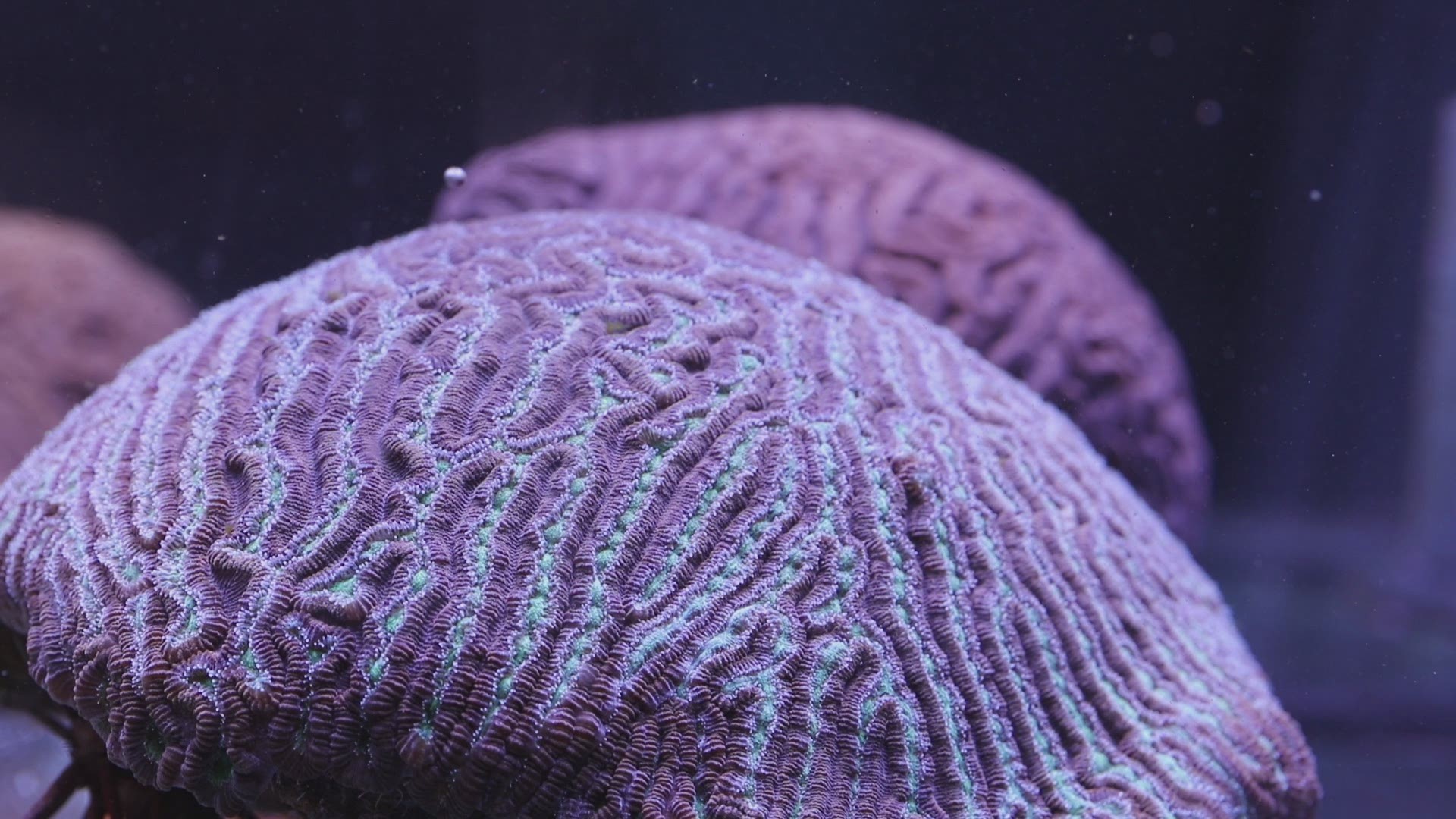MIAMI — The Florida Aquarium has reached a major milestone in its groundbreaking efforts to restore the depleted Florida Reef Tract, which is the third largest barrier reef on Earth.
The Tampa facility announced Wednesday that it had successfully cross-bred wild grooved brain corals from the Florida Keys with rescued brain corals that it had under its care. It's the first time cryogenically-preserved sperm has crossbred brain coral parents that came from different locations, according to a news release.
"The hope is that corals produced using this technique will be more resilient to future disease outbreaks and will help restore the Florida Reef Tract," the aquarium explained in the release.
The advance in coral restoration efforts was made possible through a collaboration between the aquarium and scientists at the University of Miami.
The aquarium says stony coral tissue loss disease – which appeared in 2014 – has devastated the state's reefs, impacting more than 20 species in Florida and the Caribbean.
According to the release, in 2018, the Florida Coral Rescue Team worked with FWC and NOAA Fisheries to remove corals that hadn't yet been affected. They distributed them to aquariums across the country to protect their genetic diversity and help with future reef restoration efforts.
Coral biologist Andrew Baker is a professor of marine biology and ecology and director of the Coral Reef Futures Laboratory at the University of Miami's Rosenstiel School of Marine and Atmospheric Science.
“This is the first attempt to use rescued corals to breed for increased resistance to stony coral tissue loss disease,” Baker wrote in a statement. “By cross-breeding the remaining wild brain corals with the rescued corals that were saved earlier, we hope to re-introduce some of the genetic diversity that would otherwise have been lost from Florida’s reefs. This diversity is essential to maintain ecosystem resilience to help Florida’s reefs survive into the future.”
What other people are reading right now:
- Find a Lightning watch party for Game 3 against Carolina
- Doctors treating more viruses in children as COVID restrictions ease
- President Biden tasks VP Harris to lead Dems in voting rights bill push in Congress
- The history of naming tropical systems
- What can I get tax-free during Florida's Disaster Preparedness Sales Tax Holiday?
►Breaking news and weather alerts: Get the free 10 Tampa Bay app
►Stay In the Know! Sign up now for the Brightside Blend Newsletter

